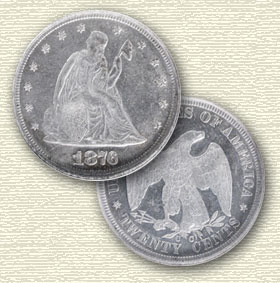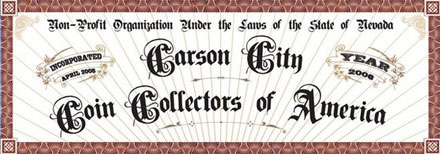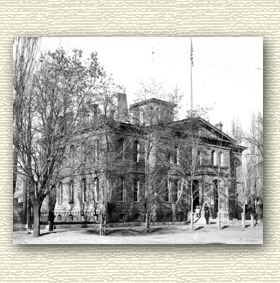- Posts: 177
- Thank you received: 0
The Comstock Lode of Japan
15 years 8 months ago - 15 years 8 months ago #1215
by LITAS
The Comstock Lode produced tons of silver and gold from 1850 to 1922 when the pumps were shut off and the mines were flooded. At that time all underground mining stopped. At present Goldspring, Inc. owns the largest acreage of claims in the history of the Comstock Lode. The company claims to have discovered $500 mil of deposits.
During my trip to Japan this month, I was able to visit Sado Kinzan Mine on the island of Sado ga Shima. This is the only gold mine in Japan that produced large amounts of gold, silver and copper. It was in operation from 1,600 to 1,989. Tokugawa Shogunate controlled the island of Sado ga Shima and the mine. The mine produced 400 kg of gold annually.
Today the mine is open to public with a good museum showing displays and models about its operation. The main attractions are the two walking courses that leed through the mining tunnels. The tunnels are populated by well done, life-size displays of animatronic miners "working" the mines.
Entire production from mining to coining was done at the mine. Gold was purified to 95%, thin sheets were pounded out and coins were stamped and cut out by hand. These were oval gold coins called Koban. The value of a Koban was related to the amount of rice needed to feed one person for a year. In 1868 Koban was replaced by European currency system.
Depending on which era the Koban coins were made, they weighed from 11 to 13 grams. The original Koban coins sell from $30,000 and up, however, one can buy a Omijage coin (souvenir) for about $10 at the gift shop. I bought one.
To get to the mine from Tokyo take a Shinkansen (bullet train) to Niigata. It takes about two hours. From Niigata harbor take a "jet-foil", hydrofoil boat to the east side of Sado ga Shima island. The hydrofoil was manufactured by the Boeing Company. It took less than an hour to cover 40 miles to the island. The boat lifts its hull from the water (about four feet) and runs fast and smooth. From the east side of the island go to the west side by taxi or bus. The mine is located close to Aikawa city.
If you like gold coins, it is well worth the trip. I wish that Virginia City would construct something similar.
John Armonas
The Comstock Lode of Japan was created by LITAS
The Comstock Lode produced tons of silver and gold from 1850 to 1922 when the pumps were shut off and the mines were flooded. At that time all underground mining stopped. At present Goldspring, Inc. owns the largest acreage of claims in the history of the Comstock Lode. The company claims to have discovered $500 mil of deposits.
During my trip to Japan this month, I was able to visit Sado Kinzan Mine on the island of Sado ga Shima. This is the only gold mine in Japan that produced large amounts of gold, silver and copper. It was in operation from 1,600 to 1,989. Tokugawa Shogunate controlled the island of Sado ga Shima and the mine. The mine produced 400 kg of gold annually.
Today the mine is open to public with a good museum showing displays and models about its operation. The main attractions are the two walking courses that leed through the mining tunnels. The tunnels are populated by well done, life-size displays of animatronic miners "working" the mines.
Entire production from mining to coining was done at the mine. Gold was purified to 95%, thin sheets were pounded out and coins were stamped and cut out by hand. These were oval gold coins called Koban. The value of a Koban was related to the amount of rice needed to feed one person for a year. In 1868 Koban was replaced by European currency system.
Depending on which era the Koban coins were made, they weighed from 11 to 13 grams. The original Koban coins sell from $30,000 and up, however, one can buy a Omijage coin (souvenir) for about $10 at the gift shop. I bought one.
To get to the mine from Tokyo take a Shinkansen (bullet train) to Niigata. It takes about two hours. From Niigata harbor take a "jet-foil", hydrofoil boat to the east side of Sado ga Shima island. The hydrofoil was manufactured by the Boeing Company. It took less than an hour to cover 40 miles to the island. The boat lifts its hull from the water (about four feet) and runs fast and smooth. From the east side of the island go to the west side by taxi or bus. The mine is located close to Aikawa city.
If you like gold coins, it is well worth the trip. I wish that Virginia City would construct something similar.
John Armonas
Last edit: 15 years 8 months ago by LITAS.
Please Log in to join the conversation.
- Loosechange
- Offline
- Platinum Member
-

- Married to my best friend!
Less
More
- Posts: 504
- Thank you received: 0
15 years 1 week ago #1913
by Loosechange
Go "CC'S"
Replied by Loosechange on topic Re:The Comstock Lode of Japan
John,
Sorry for an extremely late reply to this post. The information you provided is fascinating. I have seen many Koban coins at shows and always liked the design. Though i will never myself get to Japan i have been there through your post.
Loosechange
Sorry for an extremely late reply to this post. The information you provided is fascinating. I have seen many Koban coins at shows and always liked the design. Though i will never myself get to Japan i have been there through your post.
Loosechange
Go "CC'S"
Please Log in to join the conversation.
15 years 1 week ago - 15 years 1 week ago #1917
by LITAS
Replied by LITAS on topic Re:The Comstock Lode of Japan
Loosechange,
Better late than never.
Gold coins of Japan are beautiful, but very expensive. Collecting Koban could be compared to collecting Carson City Mint coins of 1870. One needs "deep pockets".
If you are interested in Japanese coins, a good place to start is the Tempo Era (1835-1853) coins. They have a unique shape and are not expensive. There were many mints that produced them, since each prefecture had it's own mint.
These are large, oval-shaped 100-mon bronze coins. The obverse inscription on these unusually shaped coins translates as "Valuable Money of Tempo Era." On the reverse are the denomination, "One Hundred," and the name of the magistrate who authorized the coinage.
An interesting history is attached to the Tempo Era coins. Commodore Matthew C. Perry, an American naval officer and diplomat who is most famous for his 1852 mission to Japan that opened that country to trade with the West, was a coin collector. He collected and studied unusual kinds of money that he encountered during his trips.
In his collection he had an ancient gold stater of Philip II of Macedon, 1836 Gobrecht silver dollar, nearly 100 Tempo Era 100-mon coins and many other unusual coins. In 1994 his collection was sold at auction.
In my collection I have a few Japanese coins. My other hobby or interest is the Japanese language and Japanese culture. At present I have a number of Japanese friends, who help me to translate some of the writing on their coins. So far I have been to Japan eight times, combining business and pleasure. Japanese are fascinated by American West and all the wild stories about it. I am trying to introduce them to the coins from the Carson City Mint.
John Armonas
Better late than never.
Gold coins of Japan are beautiful, but very expensive. Collecting Koban could be compared to collecting Carson City Mint coins of 1870. One needs "deep pockets".
If you are interested in Japanese coins, a good place to start is the Tempo Era (1835-1853) coins. They have a unique shape and are not expensive. There were many mints that produced them, since each prefecture had it's own mint.
These are large, oval-shaped 100-mon bronze coins. The obverse inscription on these unusually shaped coins translates as "Valuable Money of Tempo Era." On the reverse are the denomination, "One Hundred," and the name of the magistrate who authorized the coinage.
An interesting history is attached to the Tempo Era coins. Commodore Matthew C. Perry, an American naval officer and diplomat who is most famous for his 1852 mission to Japan that opened that country to trade with the West, was a coin collector. He collected and studied unusual kinds of money that he encountered during his trips.
In his collection he had an ancient gold stater of Philip II of Macedon, 1836 Gobrecht silver dollar, nearly 100 Tempo Era 100-mon coins and many other unusual coins. In 1994 his collection was sold at auction.
In my collection I have a few Japanese coins. My other hobby or interest is the Japanese language and Japanese culture. At present I have a number of Japanese friends, who help me to translate some of the writing on their coins. So far I have been to Japan eight times, combining business and pleasure. Japanese are fascinated by American West and all the wild stories about it. I am trying to introduce them to the coins from the Carson City Mint.
John Armonas
Last edit: 15 years 1 week ago by LITAS.
Please Log in to join the conversation.
- Loosechange
- Offline
- Platinum Member
-

- Married to my best friend!
Less
More
- Posts: 504
- Thank you received: 0
15 years 2 days ago #1971
by Loosechange
Go "CC'S"
Replied by Loosechange on topic Re:The Comstock Lode of Japan
John, Thanks for the posting of more pictures of the coins of Japan. I know how the Japanese love the old west and if they catch on to the coins from the Mint on Carson Street, lookout! I think we would see an incredible rise in prices for this mint. I will look to add a Tempo era coin to my collection!
Loosechange
Loosechange
Go "CC'S"
Please Log in to join the conversation.
15 years 2 days ago #1973
by Garryn
Replied by Garryn on topic Re:The Comstock Lode of Japan
I know some safety specialists who would go into convulsions if they saw that photo :laugh:
Please Log in to join the conversation.
14 years 11 months ago #2001
by LITAS
Replied by LITAS on topic Re:The Comstock Lode of Japan
Researching material for my next poster, I found the following entry in the "American Journal of Numismatics", July 1875, a number of members of Boston numismatic society visited Philadelphia mint and were allowed to see mint's collection of coins. There were mint cabinet cases filled with coins from Austria, Portugal, Spain, Brazil, etc.
One small case contained coins from Japan. They noticed a piece of money about the size of a man's hand. This was made of gold and called an "Oban", the value being $75.
The regulations in regard to this coin were singular --- for carrying it out of Japan willfully was death and by accident, an imprisonment for life. It's one valuable coin.
How about those 1933 $20 coins?
John Armonas
One small case contained coins from Japan. They noticed a piece of money about the size of a man's hand. This was made of gold and called an "Oban", the value being $75.
The regulations in regard to this coin were singular --- for carrying it out of Japan willfully was death and by accident, an imprisonment for life. It's one valuable coin.
How about those 1933 $20 coins?
John Armonas
Please Log in to join the conversation.
Time to create page: 0.141 seconds







